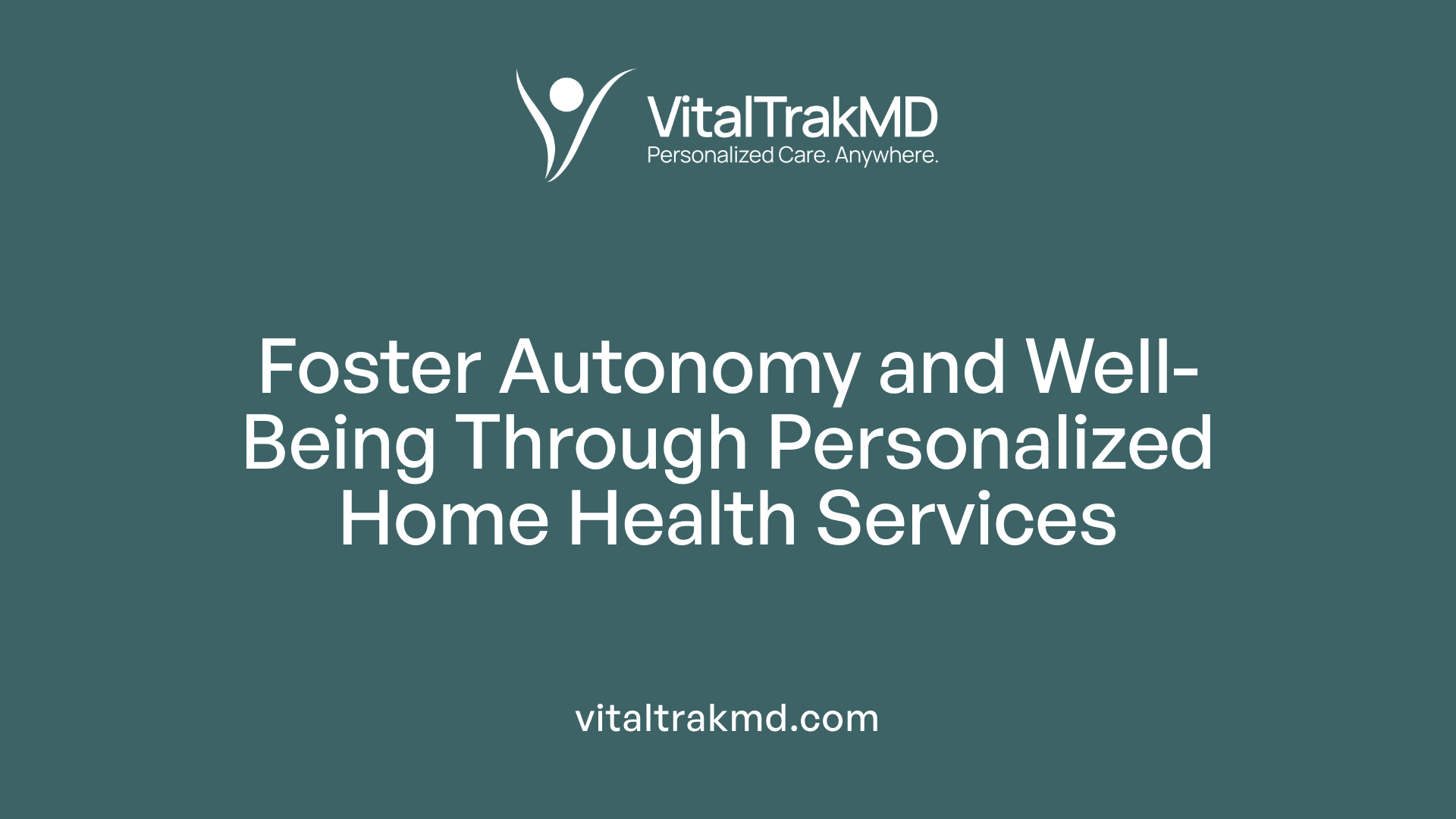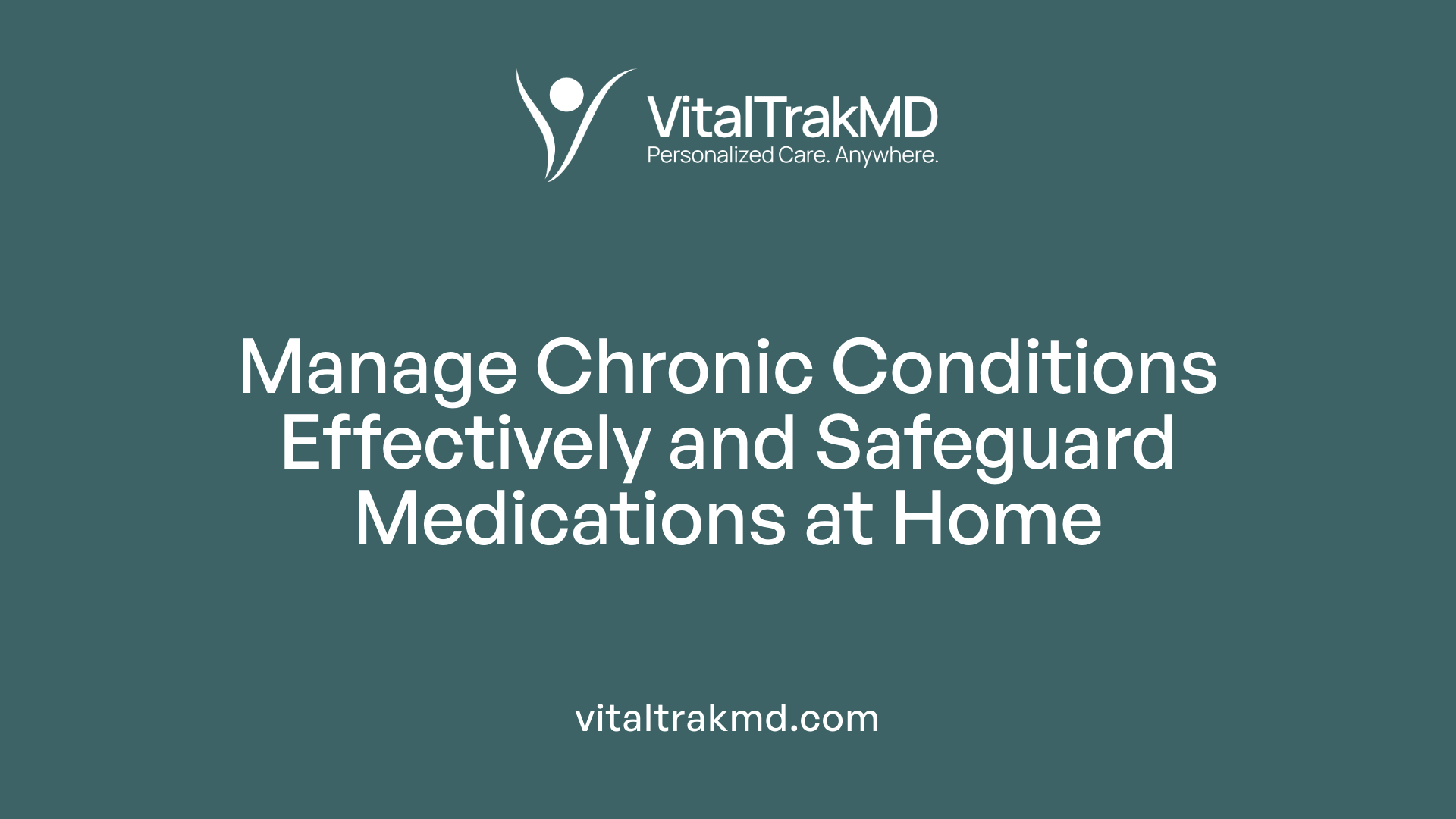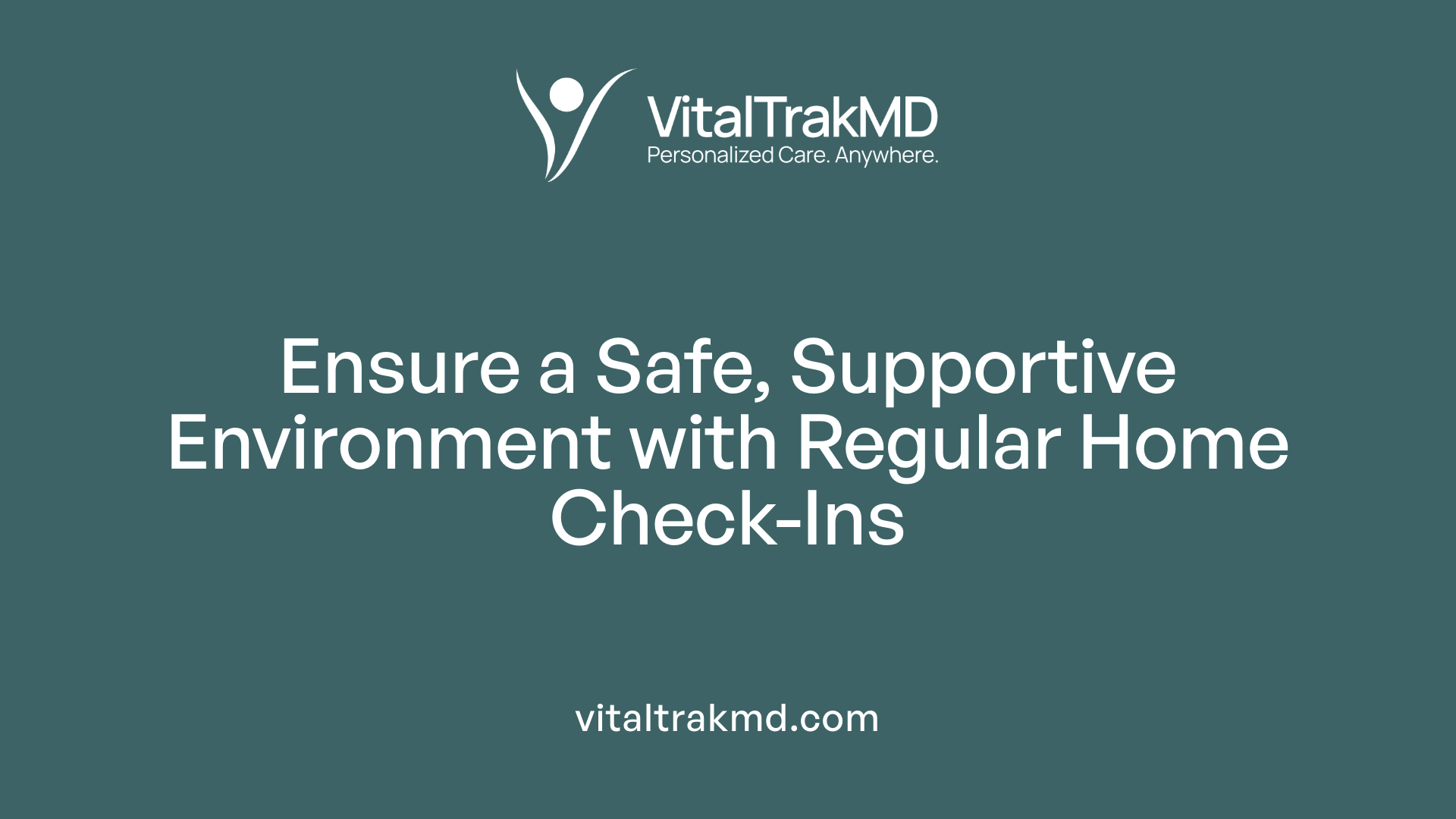The Top 5 Benefits of Home Health Check-Ins for Adults

Understanding the Impact of Home Care on Adult Health
Regular home health check-ins provide essential medical and supportive services that significantly improve health outcomes, safety, and independence for adults. This article explores the top five benefits of these personalized visits, highlighting how they promote recovery, manage chronic conditions, ensure safety, and enhance quality of life.
Home Health Care for Adults and Seniors: Key Facts
- Home health care accelerates recovery by providing personalized treatment in a familiar environment, reducing complications.
- It enhances independence for seniors by assisting with daily activities, managing chronic conditions, and incorporating safety modifications.
- Nurse home visits offer individualized care, promote trust, and facilitate early health issue detection, improving outcomes.
- Home services play a crucial role in managing chronic diseases and safeguarding medications, leading to better health maintenance.
- Regular home health check-ins support aging in place by monitoring health, improving safety, and combating social isolation.
- Medicare covers skilled home health services** for eligible individuals, requiring patients to be **homebound and needing intermittent skilled care.
- Coverage applies through Medicare Part A and B, delivered by certified agencies, often at no direct cost but with some cost-sharing.
- Home health care reduces hospital visits and offers cost-effective, convenient support, fostering recovery and independence.
- Home safety assessments and environmental modifications help minimize falls and support safer recovery after injury or surgery.
- Overall, home health services strengthen physical, mental, and emotional well-being, empowering adults and seniors to live fuller, healthier lives.
1. Promoting Faster Recovery and Preventing Complications
 Home health care plays a vital role in helping adults recover more quickly from illnesses, injuries, or surgeries. Being cared for in a familiar environment offers emotional comfort and reduces stress, which are important factors in speeding up recovery. Patients often experience fewer complications, such as infections or wound issues, because professional healthcare providers oversee their treatment and monitor progress closely.
Home health care plays a vital role in helping adults recover more quickly from illnesses, injuries, or surgeries. Being cared for in a familiar environment offers emotional comfort and reduces stress, which are important factors in speeding up recovery. Patients often experience fewer complications, such as infections or wound issues, because professional healthcare providers oversee their treatment and monitor progress closely.
One of the main benefits of home health services is the personalized care tailored to each individual’s needs. Skilled nurses, therapists, and aides develop customized plans that include medication management, therapy, and health education. This targeted approach helps in early detection of potential problems, allowing for prompt interventions that prevent hospital readmissions.
Home safety assessments and adjustments further minimize the risk of falls or accidents, aiding recovery after injury or surgery. Moreover, being in a familiar environment supports emotional well-being, reducing anxiety and promoting a sense of independence.
Overall, home health care not only accelerates physical healing but also sustains mental and emotional health. It offers a comprehensive approach that reduces complications, enhances safety, and supports patients in regaining their maximum level of functioning and independence.
2. Enhancing Independence and Quality of Life

How do home health care services improve quality of life and independence for adults and seniors?
Home health care plays a vital role in helping older adults and seniors live more fulfilling and autonomous lives. These services offer personalized support that adapts to each individual’s health needs and daily routines. Skilled professionals such as nurses, therapists, and aides collaborate to create tailored care plans focusing on maintaining or improving health condition management.
One of the principal benefits is assisting with daily activities like bathing, dressing, and meal preparation. This guidance helps patients sustain their independence within the comfort of their homes. Moreover, home health providers implement modifications and help with mobility aids to enhance safety and reduce fall risks. Simple adjustments, such as grab bars or stair rails, coupled with assistive devices, make navigation safer and easier.
Managing chronic conditions is another cornerstone of effective home health care. Regular monitoring, medication management, and patient education help prevent complications and reduce hospital visits. For instance, patients with heart disease or diabetes learn to control their symptoms better through consistent support and intervention.
Reducing social isolation is also crucial for mental and emotional health. Home health care often includes social visits, facilitating interaction, and providing companionship. These efforts combat loneliness, promoting better psychological well-being.
Patient education and the use of technology, such as telehealth, empower individuals to take charge of their health. Training caregivers and family members further expands support networks and enhances overall safety.
In summary, home health care nurtures a sense of autonomy while ensuring safety, health management, and emotional support. It encourages older adults to lead active, engaged lives in familiar surroundings, greatly enhancing their quality of life and independence.
3. Personalized Support and the Benefits of Nurse Home Visits

What are the advantages of nurse home visits and personalized support?
Nurse home visits and tailored support deliver numerous benefits that significantly enhance the quality of care for older adults. One of the primary advantages is the ability to provide care that is individualized, addressing each patient's specific medical needs, routine preferences, and social circumstances. This patient-centered approach fosters trust and encourages active participation in care decisions.
Receiving healthcare services at home boosts comfort and reduces stress for older adults, which can accelerate recovery and improve overall health outcomes. Unlike in clinical settings, the familiar environment helps patients feel secure and relaxed, promoting better adherence to treatment plans.
Continuous monitoring is a critical component of these home visits. Nurses regularly assess vital signs, wound healing, and medication effectiveness, enabling early detection of potential health issues. Prompt intervention can prevent complications, reduce hospital readmissions, and sometimes avoid emergent interventions altogether.
Enhanced communication is another benefit. Nurse visits facilitate better coordination between healthcare providers, patients, and caregivers. Clear, direct discussions about health concerns, treatment adjustments, and safety modifications are easier in the home, leading to more comprehensive and effective care.
Moreover, home visits help ensure medication safety and proper management, which is especially vital for patients with complex treatment regimens. The nurse’s oversight minimizes errors and side effects, promoting safer medication use.
Cost-effectiveness is also notable. By preventing hospital stays and unnecessary emergency visits, nurse home visits reduce healthcare expenses for both families and providers. Additionally, patients benefit from increased convenience, as they do not need to travel to clinics or hospitals, saving time and effort.
Overall, nurse home visits offer a holistic approach that supports not only physical health but also emotional well-being. They serve as a reliable, accessible means to maintain independence and improve quality of life for older adults living at home.
4. Chronic Disease Management and Medication Safety

What role do home health services play in managing chronic diseases and medication safety?
Home health services are crucial in supporting adults with chronic conditions like diabetes, heart disease, COPD, and kidney disease. These services deliver ongoing, personalized care directly in the comfort of the patient's home, helping to maintain health, slow disease progression, and avoid unnecessary hospital visits.
Skilled nurses, therapists, and social workers constantly monitor vital signs, symptoms, and medication adherence. This regular oversight enables early identification of potential complications like infections, medication side effects, or worsening symptoms.
One important aspect of home care is medication safety. Professionals assist in managing complex medication regimens by reviewing prescriptions, educating patients about proper usage, and addressing issues like polypharmacy or improper storage, which can lead to adverse effects.
Home health aides and clinicians conduct comprehensive assessments of the patient's environment and social circumstances. These evaluations help identify risks such as safety hazards or barriers to medication adherence, ensuring environmental factors support health goals.
Early detection of issues is facilitated through routine check-ins, enabling prompt adjustments to treatment plans. For instance, detecting irregular blood pressure readings or changes in respiratory status can lead to early interventions, reducing the likelihood of emergency care.
Addressing social determinants of health, including access to resources and environment safety, further enhances successful chronic disease management.
Overall, home health services combine clinical expertise, patient education, and environmental assessments to improve the safety, effectiveness, and quality of managing long-term health conditions, supporting aging in place with better health outcomes.
5. Supporting Aging in Place and Senior Care

How important are home health check-ins in supporting aging in place and senior care?
Regular home health check-ins play a vital role in helping seniors live comfortably and independently at home. These visits enable healthcare professionals to assess ongoing health conditions, identify potential safety hazards, and respond promptly to emergencies or health deterioration.
Through routine monitoring, caregivers can detect early signs of health issues such as blood pressure fluctuations, wound complications, or medication errors. This proactive approach helps prevent hospitalizations and reduces the risk of complications.
In addition to medical oversight, check-ins foster social connections, combat loneliness, and improve emotional well-being. Older adults often experience social isolation, which can negatively impact their mental health. Regular visits or calls provide companionship, reassurance, and a sense of being cared for.
Personalized care plans, incorporating in-person visits, phone check-ins, or automated systems, ensure each individual’s unique needs are met. These assessments often involve evaluating home safety, supporting proper medication management, and providing education about health conditions.
Overall, consistent home health check-ins create a safer, more supportive environment. They empower seniors to maintain autonomy while ensuring they receive the necessary care and attention. This integrated approach ultimately enhances quality of life and prolongs the ability to age in place.
Understanding Medicare Coverage for Home Health Care
Is home health care covered by Medicare and who is eligible?
Yes, Medicare covers a range of home health care services for eligible individuals. To qualify, patients must be considered homebound, meaning leaving home requires considerable effort or assistance. They must also require intermittent skilled nursing, physical therapy, speech-language pathology, occupational therapy, or medical social services.
Coverage applies under both Medicare Part A and Part B. The care plan needs to be certified and reviewed by a healthcare provider, ensuring it aligns with Medicare requirements.
Services are delivered by Medicare-certified home health agencies. The majority of these services are provided at no direct cost to patients, though some cost-sharing, like copayments for durable medical equipment, might apply.
It’s important to note that Medicare does not cover 24-hour home care, homemaker services, meal deliveries, or personal care assistance that does not involve skilled medical care. Patients should work closely with their healthcare providers and home health agencies to confirm eligibility and understand any potential costs.
In summary, Medicare provides reliable coverage for eligible seniors needing skilled, intermittent care at home, supporting recovery and independence while minimizing unnecessary hospital visits.
The Path to Safer, Healthier Aging at Home
Regular home health check-ins are a vital component of adult healthcare, providing personalized medical attention and support that help manage chronic conditions, promote recovery, and ensure safety. These visits foster independence and improve quality of life by offering tailored care in a familiar environment. Recognizing the importance of Medicare coverage and understanding how these services can prevent hospitalizations and emergency situations are key to making informed decisions. Embracing home health check-ins empowers adults to age in place with dignity, comfort, and improved well-being, ultimately supporting healthier, safer, and more fulfilling lives.
References
- 10 Benefits of Home Health Care - Amedisys
- What are the Benefits of Home Health Care - VNA Health Group
- Top 5 Reasons to Consider Home Care Assistance for Older Adults
- Nurse Home Visits | 5 Practical Benefits - Wellness Strategies Group
- Services for Older Adults Living at Home | National Institute on Aging
- 5 Benefits of an at Home Caregiver - VNA Health Group
- What Home Health Is Covered by Medicare?
- 6 Benefits of Home Care and Home Health Care Services
- Patient Safety and Quality in Home Health Care - NCBI
- Home Health Services Coverage - Medicare
Recent articles
Want to Feel Better and Live Healthier?
Join hundreds of patients taking control of their health with personalized care that fits their life – not the other way around.
Rated 4.8/5 by 32+ customers







